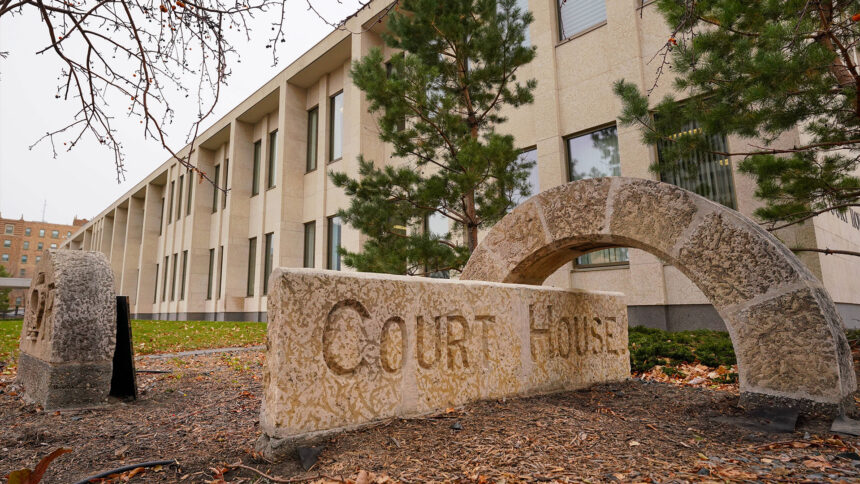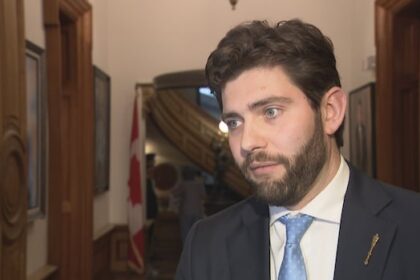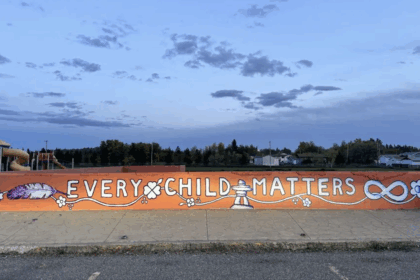Lawyers for the Saskatchewan government say two landmark national reports should not be admitted as evidence into a proposed class action case against the province. In a submission to the Court of Kings bench in Regina, lawyers called the final reports from the National Inquiry into Missing and Murdered Indigenous Women and Girls and the Truth and Reconciliation Commission “patently unreliable.” Saskatchewan is appealing a decision on a “strike motion” where it says the judge “admitted the Report Exhibits for the truth of their contents in support of the application for certification,” according to court records. The hearing is set to take place in the Saskatchewan Court of Appeal on Wednesday. Justice Peter Bergbusch ruled on the issue at a hearing on Sept. 25. He determined the TRC and national MMIWG inquiry reports were admissible under the public documents exception to the rule against hearsay. The two final reports are included as exhibits along with other evidence to support the certification of a class action lawsuit against Saskatchewan for its use of birth alerts. The class action was launched in 2023 by Chantelle Cheekinew, a First Nations woman from Regina who alleges she was subject to birth alerts in relation to three pregnancies. In her statement of claim, Cheekinew alleges that birth alerts were used by Saskatchewan “without a legal basis or justification.” She also claims Saskatchewan breached her privacy rights by disclosing confidential information, including personal healthcare information, through the province’s alleged birth alert scheme. Birth alerts are when social workers flag expectant parents to hospitals in advance of a child’s birth when it is believed that the newborn may be at risk of harm and in need of protection after delivery. “Birth alerts are typically issued by child welfare workers without prior knowledge or consent of the expectant parents. The alert prompts hospital staff to contact child welfare authorities as soon as the baby is born and could result in the newborn being apprehended and placed into out-of-home care,” says a report shared by the First Nations Child and Family Caring Society. The TRC and the national MMIWG inquiry The Truth and Reconciliation Commission was part of the Indian Residential School Settlement Agreement – a massive class action lawsuit against the federal government for harms suffered by thousands of Indigenous children who attended the institutions. Part of the agreement forced the federal government to form a commission to investigate what happened in those schools. Thousands of former students and their families took part in public hearings that took place across the country. In 2015, the TRC issued its final report that included 94 “calls to action.” The final report called on federal, provincial, territorial, and Indigenous governments to reduce the number of Indigenous children in care. It includes a call to action that adequate resources be provided “to enable Indigenous communities and child-welfare organizations to keep Indigenous families together where it is safe to do so.” The TRC commissioners with Prime Minister Justin Trudeau on the day the final report was released in 2015. Photo: Adrian Wyld/The Canadian Press The national MMIWG inquiry was called in 2016 by former prime minister Justin Trudeau to investigate the staggering rates of violence against Indigenous women and girls. Over the course of three years, nearly 3,000 people took part in the hearings which criss-crossed the country, including experts, knowledge keepers, police agencies and government officials. In 2019, the final report was handed to Trudeau at a ceremony in Gatineau, Que., across the Ottawa River from Parliament Hill. Called Reclaiming Power and Place, it included 231 “calls for justice.” It also declared that violence against Indigenous women and girls in Canada a genocide. The final report called for all jurisdictions to end the use of birth alerts. “Birth alerts are racist and discriminatory and are a gross violation of the rights of the child, the mother, and the community,” the report says. The argument against the use of the MMIWG and TRC reports in the proposed birth alerts class action is contained in Saskatchewan’s legal brief. According to Saskatchewan, Bergbusch “concluded, with little explanation, that the Report Exhibits ‘provide relevant context for the [Respondent’s] claim and may have some probative value in relation to the certification criteria.’” The judge’s decision comes after Saskatchewan applied to strike portions of the Cheekinew Affidavit, including the report exhibits, along with other evidence filed in support of the certification application. According to government lawyers, the judge “failed to take full account of the legal test that he was required to apply when considering whether the Report Exhibits could be admitted.” Allowing public reports in the justice system In the past, courts have allowed “hearsay from public records to be admissible in court as they are presumed to be trustworthy because they are made by public officials in the course of their duties,” according to the Canadian Criminal Law Notebook, an online legal reference database. “Public officers are expected to perform their duties honestly and carefully, and the inconvenience of calling every official to testify makes a blanket rule necessary.” However, Saskatchewan alleges that the legal test for “invocation of the public documents exception wasn’t correctly identified” by the judge. “The information set out in the Report Exhibits is patently unreliable,” the appeal document states. The consortium of lawyers bringing the class action provided APTN News with a statement on Saskatchewan’s application. “The Saskatchewan Government attempts to appeal on the basis that the final reports of the TRC and the NIMMIWG are ‘patently unreliable’…implies that survivors of birth alerts who testified before the TRC and the NIMMIWG should not be believed,” the statement says. “The courage required to share intimately personal details before Commissions and Inquiries with public interest mandates—for the benefit of all Canadians—should be treated with greater respect.” The cover of the final report of the National Inquiry into MMIWG. Photo: APTN file However, a statement provided by Saskatchewan Justice says they’re not “focused on the content of those documents.” It goes on to say that Wednesday’s hearing “involves an application for leave to the Court of Appeal on the question of what public documents meet the established legal criteria to be admissible as evidence in court.” “As this matter is before the court, we will not be providing any further comment at this time.” The opposition NDP says the government’s appeal sets back the goal of reconciliation. “We are appalled and disgusted by Scott Moe’s Sask. Party government. With this statement, Scott Moe’s Sask. Party government is essentially telling residential school survivors, missing and murdered Indigenous women and girls, and their families that what has happened to them doesn’t matter,” says a Joint statement from Saskatoon Centre MLA Betty Nippi-Albright and First Nations and Metis relations Shadow Minister Leroy Laliberte. Read more: Province of Manitoba challenges birth alert lawsuit over statute of limitations B.C. government fighting to keep birth alert records from public eye Saskatchewan formally ended the use of birth alerts Feb. 1, 2021, saying in a news release at the time “the removal of a child at birth is an absolute last resort and only occurs when safety of a child cannot be ensured.” Continue Reading
Saskatchewan calls final TRC and MMIWG reports patently unreliable in birth alerts case

Leave a Comment










